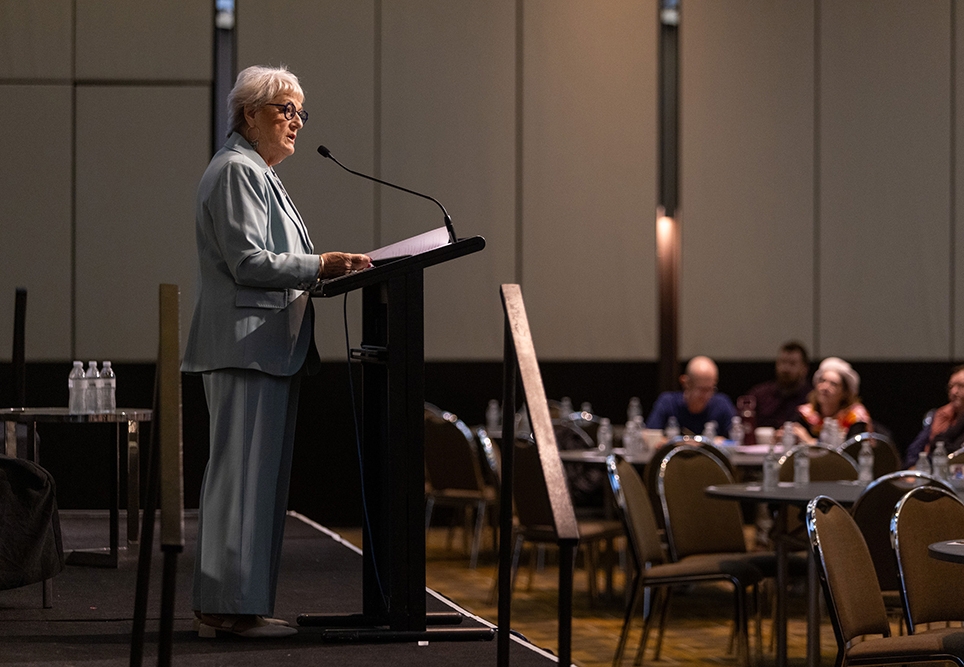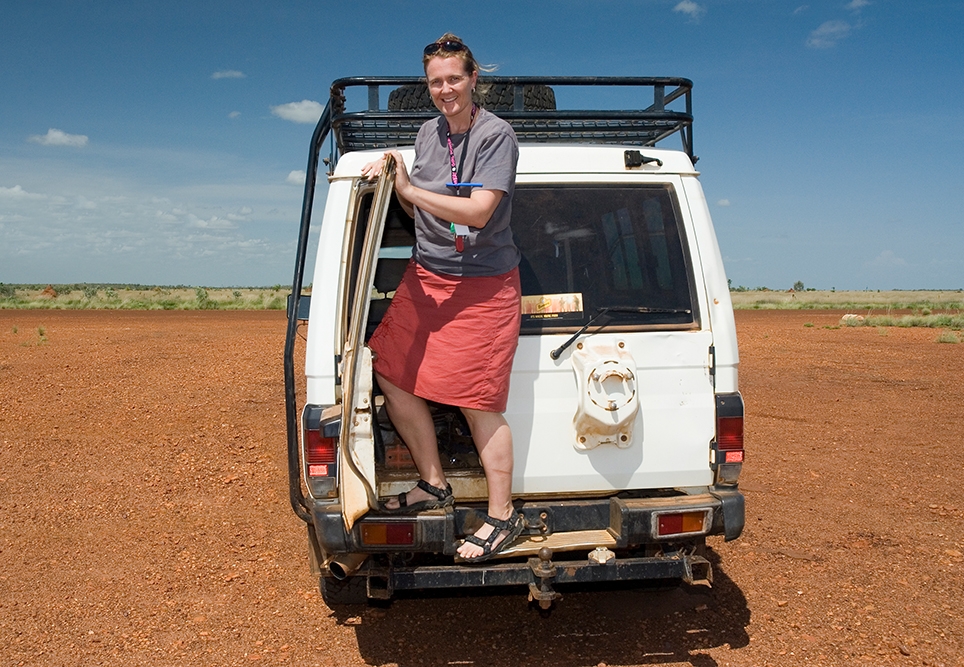Professor Sabina Knight, Director of the Centre for Rural and Remote Health at James Cook University, based in Mount Isa, is the 2020 recipient of the prestigious Aurora Award from CRANAplus, the peak professional body for the remote and isolated health workforce.
This award recognises an individual who has made an outstanding contribution to remote health. This year’s awards focus on recognising those who have responded to the COVID-19 pandemic in an exceptional way.
Federal Regional Health Minister, Mark Coulton presented the award virtually via video to Sabina today. The award presentation is normally a highlight of the organisation’s annual conference which did not occur this year because of the pandemic.
Sabina, who identifies first and foremost as a remote area nurse and health advocate, was appointed as the CRANAplus representative on the National COVID-19 Clinical Evidence Taskforce.
Sabina has contributed to CRANA since its inception in 1983, through it’s growth into CRANAplus in 2008, up to the present day. She was the first CRANA Vice President, has held the position of President several times over the years, and has held a variety of other elected roles.
Sabina recalls the early days of the organisation when “we lobbied hard and strong to improve remote health and to improve the capability of the remote nursing workforce.”
“We will always be advocates for our communities, families and clients,” says Sabina, who points out that the founding CRANA philosophy is as strong as ever, acknowledging the impact of history, underpinned with respect for every individual.
“The importance of providing high quality care goes beyond technical skills. Remote health workers need to be well educated, calm and collegial, resilient, willing to go the extra mile,” she says.
“The best and the worst of working in remote areas do, in fact mirror each other – clinical variety, dealing with uncertainty, looking after people in the context of their family and place and facing challenging situations.”
Minister Coulton also virtually presented this year’s Excellence in Remote and Isolated Health Practice Award from CRANAplus to Dianne Thornton, Nurse Practitioner at the Mallee Border Health Centre, where she provides health services to several “small town” communities on either side of the Victorian and South Australian border. This award has kindly been sponsored by JCU-Centre for Rural and Remote Health.
The 2020 Collaborative Team Award , kindly sponsored by Remote Area Health Corps, was presented to the COVID-19 Response and Action Information Group at the Top End Health Service, for providing an innovative approach to the delivery of health care during the pandemic. Team members are: Ruth Derkenne, Kelly Hosking, Jane Thomas, Tracy Porter and Teresa De Santis.
Minister Coulton congratulated all of the award winners who have delivered for rural communities in a challenging year that has encompassed fires, drought, floods and COVID-19.
“It’s a tough job, and I am eternally grateful for the contribution you make every day to provide exceptional heath care services to communities in rural and remote Australia,” Minister Coulton said.
“I want to thank all the nurses who often go above and beyond the call of duty to care for rural and remote communities, this year has been particularly challenging for rural Australia.”



